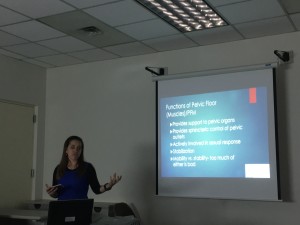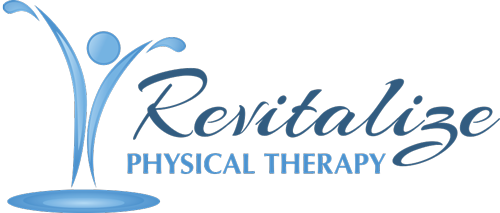
I recently had the opportunity to present a lecture on bowel dysfunction to the GI fellows at Robert Wood Johnson University Hospital. This incredible opportunity afforded me the ability to educate budding new professionals at the beginning of their career on the benefits of pelvic floor physical therapy in relation to gastroenterology disorders.
The lecture focused on fecal incontinence and constipation as paradigms of underactive and overactive pelvic floor dysfunction, respectively. It addressed the various components of a pelvic floor physical therapy initial evaluation, including food and fluid intake, toileting habits, and tests and measures. It also explained the differences between treatment approaches for underactive versus overactive pelvic floor dysfunction. The final section of the lecture focused on the benefits of biofeedback and how it can be utilized to educate patients on how to properly activate or release tension within the pelvic floor muscles, depending on the patient’s individual needs.
My personal favorite moment was at the end of the lecture, during the Q and A portion. One of the fellows turned to me and remarked, “This information is so important! Why don’t they teach us this in medical school?” I responded, “I, know, RIGHT?! But don’t worry. If it makes you feel any better, they don’t teach this to us in physical therapy graduate school either. My pelvic floor knowledge derives from continuing education courses and on-the-job training.” And that is why I have made it my mission to share the wealth with as many physicians and laymen as possible. The more informed we are in general about pelvic floor dysfunction, the more likely that those who need it will be properly diagnosed and referred for treatment in a timely manner.
For those of you who wish you could have been there to learn all about this fascinating topic, fear not and FOMO no more! I have included the lecture in today’s blog post for your listening pleasure. I hope you enjoy the lecture, and I encourage you to continue sharing the wealth with others.


